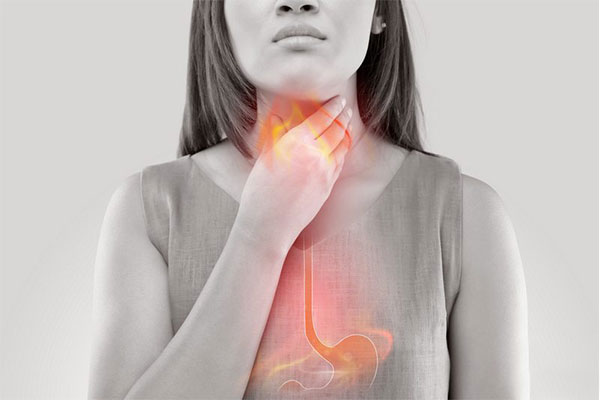Learn About Gastroesophageal reflux disease (GERD)

Learn About Gastroesophageal reflux disease (GERD)
Gastroesophageal reflux disease, or GERD, is a chronic digestive disorder that describes the return of the stomach’s contents back into the oesophagus. It is prevalent in Hong Kong.
Signs and Symptoms
If patients are suffering from GERD, they may experience a burning sensation (heartburn) in the chest (usually after eating), feeling uncomfortably full, difficulty swallowing, a feeling of a lump in the throat, hoarseness, chronic cough, a sore throat, and regurgitation of sour liquid. If the symptoms occur in the night time, the patient may also have a chronic cough, shortness of breath, laryngitis and trouble sleeping.
Complications
If left untreated, the chronic GERD may result in serious problems including esophagitis, Barrett’s Oesophagus, and Oesophageal Cancer.
Esophagitis describes when stomach acid repeatedly has contact with the lining of oesophagus, it may cause ulcers, erosions, or bleeding.
Barrett’s oesophagus is another complication that develops in some patients who have long-term GERD. It describes the abnormal changes in the lining of oesophagus due to the acid reflux. Patients who have Barrett’s oesophagus may require periodic check-ups to detect any cancer in the early stages.
Oesophageal Cancer, in its early stages, usually shows no symptoms. As the cancer develops, it could narrow the opening of the oesophagus, making swallowing difficult and/or painful.
Causes
GERD is caused by stomach acid reflux due to disorders of the lower oesophageal sphincter (LOS), a muscular valve at the junction between the oesophagus and stomach. In normal digestion, the LOS opens to allow food to pass into the stomach and closes to prevents acid and stomach contents from travelling backwards. It explains that the gastroesophageal reflux occurs when the lower oesophageal sphincter is weak, allowing the acidic stomach juices to flow back into the oesophagus.
Diagnosis
If patients suffer from similar symptoms as listed above, they are highly recommended to seek immediate medical care. Further investigations and management will be guided by patient’s signs and symptoms. Gastroscopy is a relatively direct way to diagnose GERD and its related complications (Barrett’s oesophagus and oesophageal cancer). During the procedure, doctor will insert a thin and flexible endoscopy via the throat into the oesophagus and stomach. Biopsy will be taken if any suspicious lesion is found.
Risk Factors and Prevention
Smoking, obesity, and the presence of hiatal hernia may cause a higher risk for GERD. Moreover, GERD symptoms are also common during pregnancy.
For those who have already experienced subtle symptoms, it would be better for them to make some lifestyle changes and get the symptoms relieved. They should, for their sakes, quit smoking, eating less fatty or fried food that may trigger the gastric reflux, and stop consuming alcohol and coffee. Bed head elevation could be effective to clear acid reflux. Medications, however, should be reserved for severe cases.
Treatment
In many cases, GERD can be relieved with a healthier diet. The severe cases, however, may require medication or surgery.

 3405 8288
3405 8288
